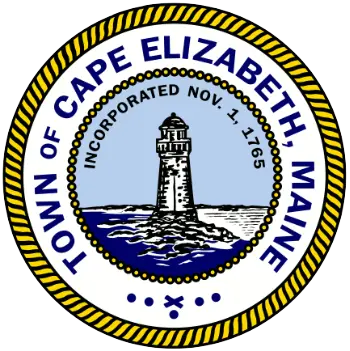Published on April 17, 2020
The School Board on April 14, 2020 approved an official Remote Learning Plan, a chart for previously uncharted waters created by the COVID-19 pandemic.
The plan, required by the Department of Education during the coronavirus emergency, codifies what has essentially been in practice in Cape Elizabeth since March 14, when Superintendent Donna Wolfrom announced that schools would close in an effort to mitigate risk to students, staff and their families.
The plan aligns remote learning with the goals of the 2020-2025 strategic plan, and identifies three goals of its own:
- Maintain regular contact with students and their families;
- Provide consistent, flexible instructional programming for students; and
- Support the health and well-being of students, families, and staff
"We will continue to focus on the whole student, recognizing that learning away from our schools creates stresses and issues that vary from those that students face within the school setting," says Wolfrom in the introduction to the document.
The plan sets standards for remote instruction, attendance, grading and instructional supports for all three Cape Elizabeth schools, and addresses building maintenance, access to buildings and delivery of food services during the period of remote learning.
A key component to the plan, according to administrators and echoed by at least one student, is flexibility. "I think flexibility and communication has been important in the success of this online school situation," said Ally Lynch, one of two High School representatives on the School Board.
Under the plan, teachers have options to provide instruction in a variety of ways – through live webinars, recorded video or other digital platforms or apps, depending on the lesson and age of the student. Instruction is delivered Mondays-Thursdays, with Fridays reserved for catch-up work or other student support.
Adoption of the plan meets the Department of Education requirements for continuity of learning during the coronavirus emergency.
Jeff Shedd, principal at the High School, said a number of surrounding school districts are reserving one day a week for non-instructional activities. "I don't know if it was everybody copying everybody else or if everybody realized that we just need to take a breath, and let the kids take a breath, and catch up and that sort of thing," he said. Teachers are also using Fridays to find out how remote learning is going for their students. "I do think in the circumstances of really trying to fly this plane, trying to build the plane while we're flying it, it is incredibly valuable," Shedd said.
Principals of all three Cape Elizabeth schools credited their teachers, students and parents for rising to a challenge that no one anticipated.
At Pond Cove Elementary School, where remote instruction is not expected to exceed 40-80 minutes a day, some teachers are not as comfortable with technology as are others, said Principal Jason Manjourides. "It's a huge shift for them," Manjourides said, so administrators and technology staff are doing all they can to support the teachers, "with compassion every step of the way."
Expectations at the Middle School vary more widely, with seventh- and eighth-graders spending more on-line time than fifth- and sixth-graders. "I continue to be impressed every day with what teachers ahve been able to pull together," said Principal Troy Eastman, affirming the importance of flexibility to the success of remote learning. "I continue to be amazed at what's happening, and the parents have been absolutely incredible and understanding.
"So it's been, I would say a success ... for the cards we were dealt."
Remote learning has its limits however and Shedd confirmed that "we are not doing what we would normally do in school." Administrators are planning to meet with staff after the April school vacation to determine what realistic academic goals will be set for students, and how to keep them engaged, through the end of the school year.
